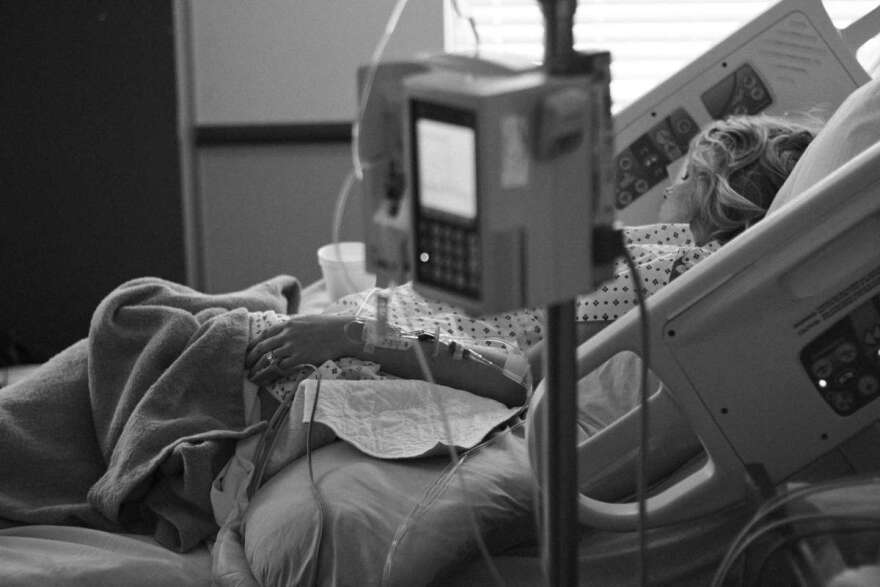People who spent time in the ICU with COVID-19 now have another battle on their hands against PTSD, depression and even anxiety.
WMFE spoke with UCF Nursing Professor Brian Peach about how and when survivors, their caregivers and families should seek treatment.
Read the full interview below.
Dr. Peach: More than half of these patients can't return to, I should say survivors. Half of these survivors can't return to work within their first year, those that were working before their illness.
Part of that is they have terrible anxiety, they have terrible depression. There are triggers in their everyday lives that trigger memories of the hospital. And so it can be very debilitating. And so what, when I use the term post-intensive care syndrome, what that refers to is physical ailments that affect their ability to do their activities of daily living.
They also have psychological issues. And they also have some cognitive issues, they have issues with memory, and just doing some very basic functioning that they were able to do prior to their hospitalization.
Danielle: I'm guessing that the mental health care field isn't necessarily prepared for this, this is new, right? This is a new type of PTSD, what are the recommendations you're making for them, and also for their caregivers, in dealing with some of these new mental health issues?
Dr. Peach: Part of the issue that we have with this condition of post-intensive care syndrome is that we don't have diagnostic codes for it, you know, that's part of the issue is that it's kind of hard for psychologists right now to treat these patients. Because there is no magic treatment for post-intensive care syndrome, but they can certainly treat their anxiety. They can use traditional methods, such as individual or group therapy, there is some cognitive behavioral training as well.
Danielle: What sort of symptoms should people be looking for in themselves, but also in others? If you know somebody's partner, or child or colleague is, you know, changed? Since they've had COVID? What should they be looking for?
Dr. Peach: Yeah, so part of it is, you know, sadness, the typical symptoms that we would think of with depression. So, you know, are they sad? Are they having a hard time getting out of bed? Are they not engaging in the way that they would have prior to their admission? You know, are they not able to complete their normal activities? Things like getting themselves dressed and ready to go for the day? Are they dealing with anxiety, you know, so that their anxiety is debilitating, that they're, again, not doing the things that we would expect a normal, healthy adult to do?
Danielle: I guess the last question I want to ask you, Brian, is just how can they get help? If they're noticing these symptoms in themselves or others? What would you recommend as a first step?
Dr. Peach: Great question. Yeah. So I think the first step would be to see their primary care provider and, you know, possibly get a referral to see a psychologist or psychiatrist. I think that's a good first step. But recognizing that this is an issue, and that many people that survive this condition of ARDS develop these sorts of symptoms. And there are about a third of these patients, or I should say, a third of survivors that will improve within the first year. There are a third that, you know, may actually get worse. So, you know, recognizing that this is really an issue and seeking that help.


